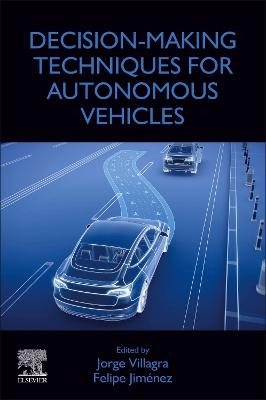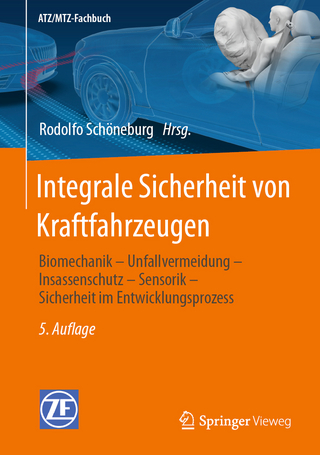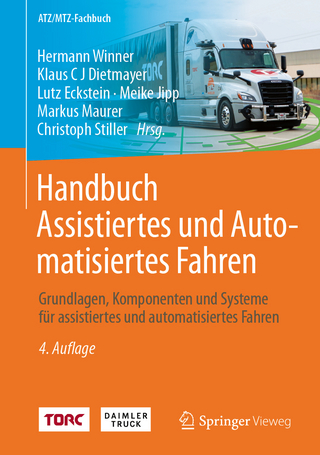
Decision-Making Techniques for Autonomous Vehicles
Elsevier - Health Sciences Division (Verlag)
978-0-323-98339-6 (ISBN)
Jorge Villagra graduated in Industrial Engineering at the Technical University of Madrid (UPM) in 2002. He received his PhD in Real-Time Computer Science, Robotics and Automatic Control at the École des Mines de Paris (France) in 2006. From 2007 to 2009 he held a position of Visiting Professor at the University Carlos III (Spain). He then received a 3-year JAE Doc fellowship at the AUTOPIA Program in the Centre for Automation and Robotics, UPM-CSIC (Spain). From 2013 until 2016 he led the Department of ADAS and Autonomous Driving Systems at Ixion Industry & Aerospace SL. He is leading AUTOPIA Program at CSIC since October 2016. He has participated in over 40 R&D), being the principal investigator in half of them. He is a regular speaker in various specialised forums, participates as an independent expert for the European Commission and has published more than 100 articles in international journals and conferences on connected and automated driving. Felipe Jiménez obtained his Master Degree in Industrial Engineering (Mechanics) from the Technical University of Madrid (UPM), his Master Degree in Automotive Engineering from the UPM, his Master Degree in Physical Science (Electronics and Automation) from the National University of Distance Education of Spain and his PhD in Mechanical Engineering from the UPM in 2001, 2002, 2005 and 2006, respectively. Currently, he is Full Professor at the UPM and Research Deputy Director and Head of the Intelligent Systems Unit of the University Institute for Automobile Research of the UPM. His fields of interest are the automotive industry, vehicle safety, mechanical design, driver assistance systems and intelligent transport systems, mainly connected and automated driving. He has been involved in more than 40 R&D projects in the last 10 years and has developed engineering studies for relevant national firms. Furthermore, he is the leader of the Spanish Thematic Network on Intelligent Vehicles.
1. Overview
PART I: EMBEDDED DECISION COMPONENTS 2. Embodied decision architectures 3. Behavior planning 4. Motion prediction and risk assessment 5. Motion search space 6. Motion planning 7. End-to-end architectures 8. Interplay between decision and control
PART II: INFRASTRUCTURE-ORIENTED DECISION-MAKING 9. Traffic data analysis and route planning 10. Cooperative driving 11. Infrastructure impact
PART III: USER INFLUENCE 12. Driver behavior 13. Human-machine interaction
PART IV: DEPLOYMENT ISSUES 14. Algorithms validation 15. Legal and social aspects
| Erscheinungsdatum | 16.03.2023 |
|---|---|
| Zusatzinfo | Approx. 200 illustrations; Illustrations |
| Verlagsort | Philadelphia |
| Sprache | englisch |
| Maße | 152 x 229 mm |
| Gewicht | 680 g |
| Themenwelt | Technik ► Fahrzeugbau / Schiffbau |
| ISBN-10 | 0-323-98339-1 / 0323983391 |
| ISBN-13 | 978-0-323-98339-6 / 9780323983396 |
| Zustand | Neuware |
| Haben Sie eine Frage zum Produkt? |
aus dem Bereich


